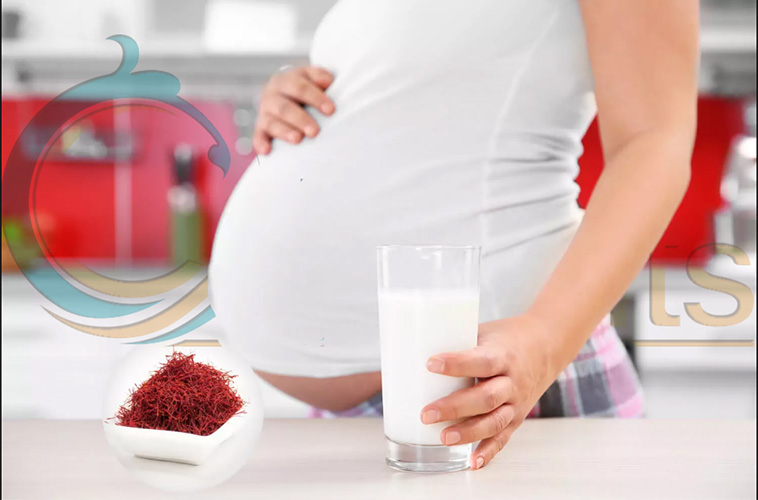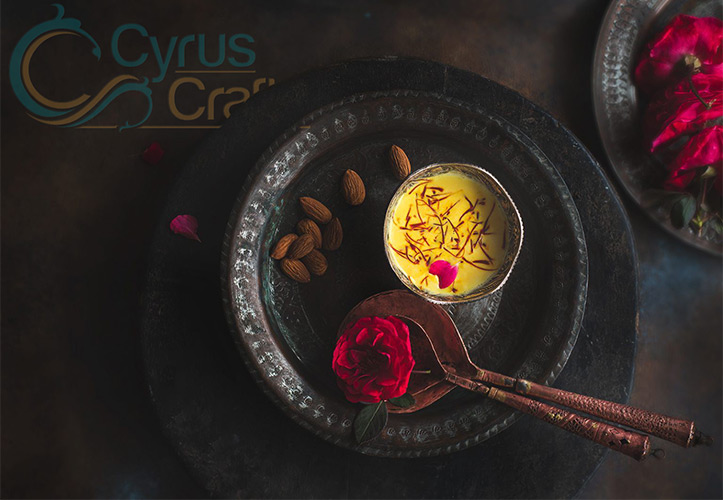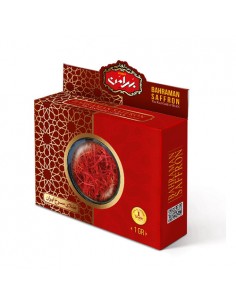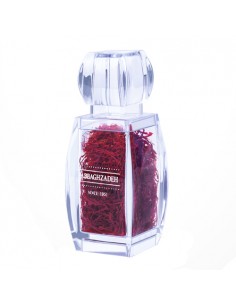- Y.SH
- News
- 1625 views
- 0 comments
Saffron is famous in various cuisines for its rich flavor and color. An exotic spice derived painstakingly from the flowers of Crocus Sativus, high-quality Saffron is also known for its medicinal properties and forms a part of several Persian recipes.
The nine months of pregnancy journey are no less than a roller coaster ride. From food cravings, backache, and nausea to the excitement of welcoming a new member to the family, pregnancy is the most cherished time in a woman's life. It's an emotion that cannot be explained in words.

Becoming a mother is a life-changing experience with tons of responsibilities. Taking care of your overall health when pregnant is the first thing that comes to mind. This is because your good health is essential for the healthy growth of your little one inside you.
A balanced diet, good habits, and staying happy are the key points to being healthy during pregnancy. In terms of a healthy diet, Saffron is highly recommended during pregnancy.
If you are pregnant and confused about introducing Saffron to your diet, here's all you need to know about this exotic spice and how it can help you. Including saffron in your diet can be done in a variety of ways, such as combining it with Persian rice for an amazing taste, as well as benefiting from its properties.
Cyrus Crafts; Luxury & Unique Products
What is Saffron?
Saffron is a spice from the saffron crocus plant, also known as Crocus sativus. The vast majority of the world's supply of Saffron is grown in Iran.

Saffron is known for its antioxidant properties, trusted Source — among other health benefits — and special price. Saffron is generally considered the world's most expensive spice due to the labor-intensive process involved in growing and harvesting it.
Is Saffron safe to consume during pregnancy?
Yes, consuming Saffron during pregnancy is safe because it has numerous medicinal properties. It helps to relieve stress, aches and pains, mood swings, and pregnancy discomforts. However, Saffron also has specific adverse effects if taken in large amounts. It can trigger contractions and cause premature delivery. Here are a few precautions to keep in mind when adding Saffron to your diet:
- Consume Saffron only at the onset of the fifth month of gestation, as the pregnancy is stable at this time, and the risk of endangering the baby due to premature contractions is reduced.
- Use only two to three strands, at most, in any preparation, as excessive Saffron may adversely affect your health.
- Saffron for pregnant women should be sourced only from a high-quality vendor to eliminate any risk of artificial coloring or impurities.
To learn how to distinguish genuine Saffron from fake Saffron, read our article on how to determine saffron quality.
saffron benefits in pregnancy
Saffron is essential and highly recommended during pregnancy because of its medicinal nature. Its primary advantage is that it helps digestion by forming a protective coating in the digestive tract. When consumed in moderation, the saffron benefits in pregnancy include the following:

1. Saffron Can Reduce Mood Swings
Pregnancy triggers several hormonal changes in your body, and that has a profound effect on your feelings. You may go from being cranky at one moment to being impulsive or emotional in another. For such times, Saffron can come to your rescue. It acts as an antidepressant and boosts blood flow to your brain. You are consuming saffron results in the production of the hormone serotonin which elevates your mood. It also reduces the stress hormone cortisol.
2. Saffron Relieves Morning Sickness
It is common for morning sickness to leave you feeling sluggish and dull. Anecdotal evidence proves that saffron-infused tea often helps combat nausea and dizziness.
3. Blood Pressure Can be Managed with Saffron
So many things can affect a pregnant woman's blood pressure—getting excited, standing up too quickly, or even eating certain foods. The herb saffron contains two substances that help lower blood pressure during pregnancy: potassium and crocetin.
4. Gets Rid of Cramps with Saffron
Many women experience intense cramps in the abdomen and pelvis during pregnancy as their bodies accommodate growing babies. Saffron is a natural painkiller that can help ease these discomforts during late pregnancy. It relaxes the muscles, helps relieve stomach pain and calms cramps.
5. Saffron Can Improves Sleep Quality
As the pregnancy progresses, sleeping becomes a challenge, with the mother tossing and turning all night to comfortably accommodate the growing belly, deal with the effects of hormonal surges, and reduce the discomfort of stretching bones. All these factors together cause cramps, pain, and discomfort.
During such times, you can have saffron-infused milk. Saffron contains mild sedative properties that help promote sleep and enable you to feel relaxed. Drinking Saffron with milk is known to improve your quality of sleep.
6. Baby Movement is Experienced with Saffron
Saffron tends to increase your body heat, causing a rise in your body temperature. As a result, the baby moves inside you. It's always a pleasure to feel your baby move in your womb.
7. Saffron can Reduce Hair-Fall
Hormonal fluctuations during pregnancy often result in increased hair fall. A widespread practice among many pregnant women is applying a paste of milk, Saffron, and licorice to reduce hair fall. The antioxidants in Saffron nourish the hair, making it stronger.
The Best Way to Use Saffron During Pregnancy
Different recipes and dishes will call for various ways to incorporate saffron. Here are the most common means of adding saffron to the diet of pregnant women, so you can decide for yourself what works best for your recipe. (For example, an attractive recipe that can include saffron in the diet plan of pregnant women is the recipe of Persian barberry rice with chicken.)
Saffron Milk
Adding a few strands of Saffron to your milk can help your baby's growth and development. Further, Saffron milk can be used to treat moderate to mild depression during pregnancy due to its mood-changing properties.

Saffron Tea
Saffron tea is a traditional tea made with saffron threads. Saffron tea is a refreshing and mood-lifting herbal beverage with many antidepressant properties.

Soaked Saffron
This is the most common way of using Saffron at home or by commercial cooks. The saffron threads are gently crushed and transferred into water, milk, or some foods like Saffron Rice, Zereshk Polo. It is left to infuse for about 10 to 15 minutes before being consumed or added to a recipe.

Saffron Water
Another simple way of consuming Saffron is by adding strands of Saffron to a glass filled with water. Saffron water can improve digestion.
Saffron is an exceedingly beneficial spice that one can add to their diet during pregnancy. However, it’s best to stay safe and consult a gynecologist for the recommended dosage. As everyone’s body is different, it’s best to consume Saffron in the quantity your body allows.












Comments (0)